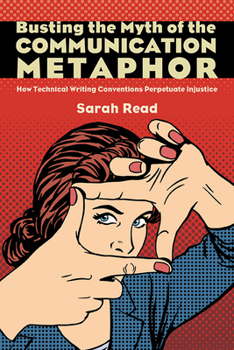Busting the Myth of the Communication Metaphor: How Technical Writing Conventions Perpetuate Injustice
Traces the linguistic, rhetorical, historical, cultural, and economic origins of our most basic beliefs and practices for successful technical writing to initiate a reckoning about who they serve and who they harm.
Busting the Myth of the Communication Metaphor is a transdisciplinary approach to making visible and explaining the multiple origins of why our most basic beliefs about what makes scientific and technical writing successful are wrong, ineffective, and harmful. These tacitly held beliefs and practices, collectively called the Communication Metaphor, stand in as symbolic for a messier, more reality-based understanding of how writing and communication works. By starting from conventional statements made by scientists, technical professionals, and standard textbooks that "successful technical writing is short and to the point, with the facts only, no opinions," the book traces the histories and structures of the multiple elements of the Communication Metaphor. The text synthesizes survey results, multiple strands of scholarship, personal experience, and original illustrations into a powerful argument for imagining a more just approach to scientific and technical writing.





